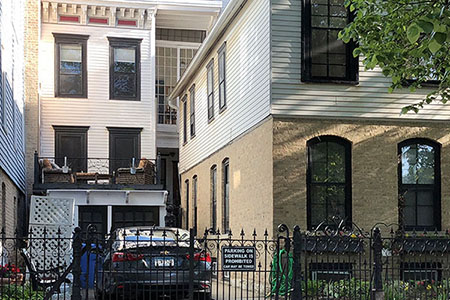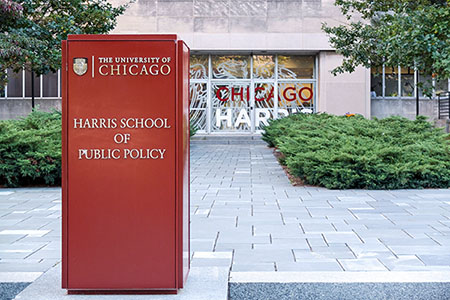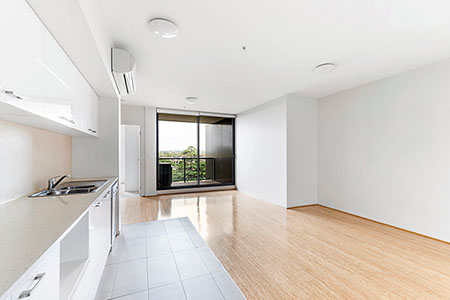(AP Photo/Seth Perlman) Unit owners urge state lawmakers to help with condo board disputes Mar. 4, 2016 – In tears, Lisa Carlson told state lawmakers in Springfield on Wednesday how she lost her condominium unit and wound up $400,000 in debt because her condo association would not fix a leaky roof. The eleven-member Judiciary-Civil Committee is discussing House Bill 4489 and two related bills that would amend the Condominium Property Act to make it easier for a unit owner to sue his or her condo association. Among the numerous changes, a condo association would not be allowed to limit a unit owner’s right to sue, compliance with a demand by the association would not waive the owner’s right to sue later, and it would require the association to represent the best interests of all unit owners without regard to the wishes of the association’s board of directors.
During a thunderstorm in August 2007, water began to pour into her top-floor unit. She says she “begged” her condo association to repair the leak. When that did not happen, she decided to withhold assessment payments until the problem was fixed. Six months later, the condo association brought a forcible entry and detainer action against her, to take possession of the unit and get their money but, she says, they continued to ignore the water problem. The legal action wound up appealed to the Illinois Supreme Court, which decided against Carlson. The court said the condo association’s failure to repair and maintain the leaky roof was not a viable defense to the forcible entry and detainer action. A lower court then awarded the association $108,000 in attorney’s fees. Her own legal expenses were more than $200,000 and the water problem had cost her $16,000. Meanwhile, Carlson was unable to sell the unit because of the water damage. It ended up going back to the mortgage lender. “Instead of the board being attentive to my problem, they not only completely ignored it, but they publicly flogged me at meetings…saying on tape that there is not a water problem and I simply do not want to pay my fair share.”
If she could do it over again, Carlson says she would have given up the unit sooner. “It would have been so much easier and I would have only lost $85,000 versus almost a half million dollars.” One of the provisions of House Bill 4489 would bar an association from recovering attorney’s fees in a forcible entry and detainer action if the unit owner can show breach of duty by the association or any board member. Carlson told Loop North News she says she hopes her testimony at least raised awareness of “the need for change” in Illinois condo law. She and her attorney, she says, “are going up against big business but we plan to keep on marching forward.”
He says the only ones benefiting from condo laws are the property management companies and the lawyers who represent them. Gold Coast unit owner says bill would have saved him and his condo board $1 million Also testifying was a unit owner from a condo association in Chicago’s Gold Coast neighborhood. Michael Novak, a former CPA with an MBA in Finance, has looked at his condo association’s books and uncovered what he says is “a massive amount of fraud.” He wants a state court to appoint a custodian to manage the association’s financial affairs. Novak was on the State Parkway Condominium Association board of directors and was treasurer but after finding what he says were “gross errors” in a 2001 reserve study, the board removed him as treasurer. He says the condo board president then met privately with unit owners and persuaded them to recall him as director at the next annual meeting. He also claims his condo association, its property management company, and a former building manager retaliated against him for filing a housing complaint. “They have been trying to get rid of me because I knew about the true financial situation of the building,” he told the committee.
Association advocate says bill would just create more lawsuits The Community Association Institute of Illinois, whose 1,100 chapter members include association managers, board members, and unit owners, says the bill would increase time and expense needed to collect delinquent assessments, and it would only result in more lawsuits. “Instead of ‘leveling’ the playing field,” writes CAI on its website, “the bills as introduced will encourage and increase litigation between condominium associations and their owners. The result [will be] an increase of attorney’s fees being imposed on the association and passed back to all non-defaulting unit owners.” Norman Lerum, a Chicago attorney whose areas of practice include condo law, says the bills should be passed to eliminate “abusive litigation tactics” by condo associations.
The provision allowing a unit owner to recover attorney’s fees, says Drury, “evens the scales, which will reduce litigation because there will be skin in the game on both sides.” “Millions of dollars have been spent in the current rules. No matter who wins…everybody is a big loser.”
|










 Related story:
Related story: 








